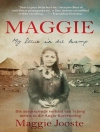Constitutional Court Justice Edwin Cameron examines and defends the role of the law in South Africa’s continuing transition. Drawing on his own life experience, including childhood hardship, struggles with sexuality and stigma, he illustrates the power and the limitations of the law. Cameron argues with compelling elegance that the Constitution offers South Africa its best chance for a just future.
‘A remarkable integration of fascinating, often moving personal memoir, professional reminiscence and acute historical analysis of South African law, politics and society.’
— Sir Sydney Kentridge, QC
‘Shows with brilliant clarity how the life of a jurist informs his reading of the law. An inspirational, but never a self-indulgent, story of a remarkable South African life.’
— Eusebius Mc Kaiser
Об авторе
Edwin Cameron has been a Justice of South Africa’s highest court, the Constitutional Court, since 1 January 2009.
Cameron was educated at Pretoria Boys’ High School, Stellenbosch and Oxford, where he was a Rhodes Scholar and won the top academic awards and prizes. During apartheid he was a human rights lawyer. President Mandela appointed him a judge in 1994. Before serving in the Constitutional Court, he was a Judge of the Supreme Court of Appeal for eight years, and a Judge of the High Court for six.
Cameron was an outspoken critic of then President Thabo Mbeki’s AIDS-denialist policies, and in 2005 wrote a prize-winning memoir, Witness to AIDS, about his own experience of living with AIDS. Published in South Africa, the United Kingdom, the United States and in translation in Germany and China, Witness to AIDS was co-winner of the prestigious Sunday Times Alan Paton award.
Cameron chaired the governing council of the University of the Witwatersrand for more than ten years (1998-2008), and remains involved in charitable and public causes. He has received numerous honours for his legal and human rights work, including a special award by the Bar of England and Wales in 2002 for his ‘contribution to international jurisprudence and the protection of human rights’. He is an honorary fellow of the Society for Advanced Legal Studies, London, and of Keble College, Oxford (2003), as well as an honorary bencher of the Middle Temple, London (2008). He holds honorary doctorates in law from King’s College London (2008), the University of the Witwatersrand, Johannesburg (2009), Oxford University (2011) and the University of St Andrews (2012).












